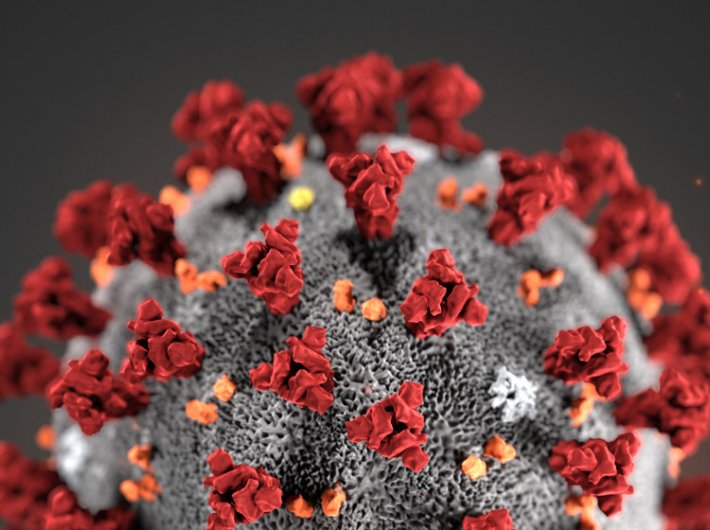How does the pre-existing condition of heart ailments increase the susceptibility of contracting the coronavirus and what are its effects?
According to the American Heart Association, ‘cardiovascular disease’ refers to a number of conditions including heart disease, heart attack, stroke, arrhythmia (abnormal heartbeat) and heart failure. Heart failure refers to the heart’s inability to pump blood at the same level of efficiency as a healthy heart while arrhythmia refers to a heartbeat that is slower or faster than the normal rate. People with these two conditions seem to be more susceptible to contracting the Covid-19 virus (source: Mayo Clinic).
As the global pandemic worsens and the Covid-19 (also known as SARS-coV-2) infection spreads, it is important to understand its effects on the body, and how those effects might affect the heart. Covid-19 is known to be a respiratory illness; however it can have serious implications on the functioning of the heart as well. If a patient already has a cardiac condition, their immune response is generally lower because of the heart’s inability to pump enough blood to different parts of the body. This makes the patient more susceptible to catching the infection.
In the United States, early studies suggested that Covid-19 is associated with a high incidence of cardiac arrhythmias (or irregular heartbeat). The scientists conducting the study evaluated the risk and incidence of cardiac arrest and arrhythmias among 700 hospitalised patients with Covid-19. According to the study, the researchers identified a total of 53 arrhythmic events amongst all patients with a mean age of 50 years.
But how does the virus work? SARS-coV-2 enters the body via a receptor called ACE2 present in the mouth and tongue, leading to a potential hand to mouth transmission. ACE2 is known for controlling blood pressure and electrolytes in the body, and is usually found in the throat, gut, heart muscle and kidney. Active replication of the virus occurs in the respiratory tract, where millions of virus cells make their way to the lungs. In the lung, the ACE2 receptor sits on top of and interferes with the functioning of lung cells. [See: https://www.medicalnewstoday.com/articles/covid-19-what-happens-inside-the-body#Phase-2:-Replication-in-the-lung-and-immune-system-alerted]
Patients who have good immunity have well-functioning white blood cells that produce antibodies to fight off the disease. These patients will have mild to no symptoms of the infection (or they might be asymptomatic). However, patients with a pre-existing cardiac condition won’t be able to produce enough white blood cells to fight off the infection. Hence, part of their lungs will collapse, causing a shortness of breath, and other breathing issues, which might result in death. [See: https://www.medicalnewstoday.com/articles/covid-19-what-happens-inside-the-body#Phase-1:Cellinvasion-andviralreplicationin-thenose]
Once the patient has the disease, its symptoms also play a massive role in furthering weakening the already weak heart. For example, one of the symptoms of Covid-19 is fever. Fever causes rapid heart rate, which increases demands on an already weak heart. This is compounded by low oxygen levels (due to pneumonia) and an increased propensity for blood clot formation. So, someone with a pre-existing heart disease who contracts Covid-19 may suffer a heart attack or develop heart failure, causing a potential death. [See: https://www.healthline.com/health-news/how-covid-19-may-damage-your-heart#How-viruses-may-cause-heart-damage] All these factors play a role in the susceptibility and after-effects of this somewhat deadly virus.
There are several implications of having a cardio-vascular pre-condition. As evaluated, patients with pre-existing heart conditions are more likely to contract Covid-19, and must take precautions to lower the susceptibility rate. Some precautions they could take are two-metre/six-foot social distancing, wearing a mask and/or limiting outings as much as possible.
Research states that there is only 1% chance of contracting the virus if both people (you and the person in contact) are wearing a mask. Epidemiological data shows a general decline in the spread of Covid-19 after wearing a mask. A study published in Health Affairs evaluated the effects of wearing a mask in 50 US states. The results showed, “The first five days after a mandate, the daily growth rate slowed by 0.9 percentage-points compared to the five days prior to the mandate.” [See: https://www.ucsf.edu/news/2020/06/417906/still-confused-about-masks-heres-science-behind-how-face-masks-prevent] This supports the claim that masks slow down the spread of the virus and can truly be life savers, particularly for those with a pre-existing cardiac condition.
In light of the current pandemic, cardiovascular diseases play a massive role in the contraction of Covid-19, especially in India, where one out of every four deaths occurs due to cardiovascular diseases (CVD). In 2016 itself, an estimated 54.5 million Indians had some form of CVD. Hence, it is important that patients with a pre-condition of CVD take serious precautions in order to avoid the risk of a lethal disease. [See: https://www.ahajournals.org/doi/10.1161/CIRCOUTCOMES.118.005195]
References:
https://www.heart.org/en/health-topics/consumer-healthcare/what-is-cardiovascular-disease
https://www.health.harvard.edu/blog/how-does-cardiovascular-disease-increase-the-risk-of-severe-illness-and-death-from-covid-19-2020040219401
https://www.ahajournals.org/doi/10.1161/CIRCOUTCOMES.118.005195
Saloni is a high school senior at the American School, Mumbai. Biology is a strong interest of hers, and she studied research on this topic for weeks to compile this article.
